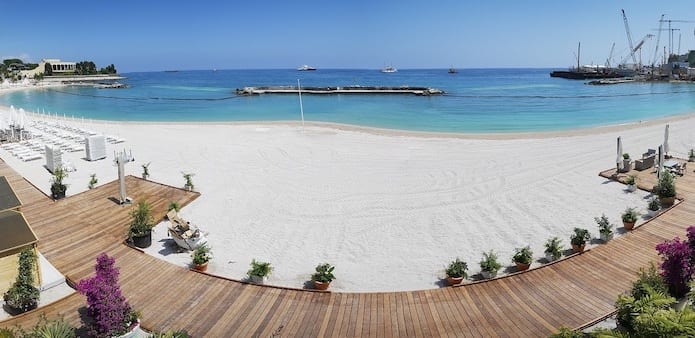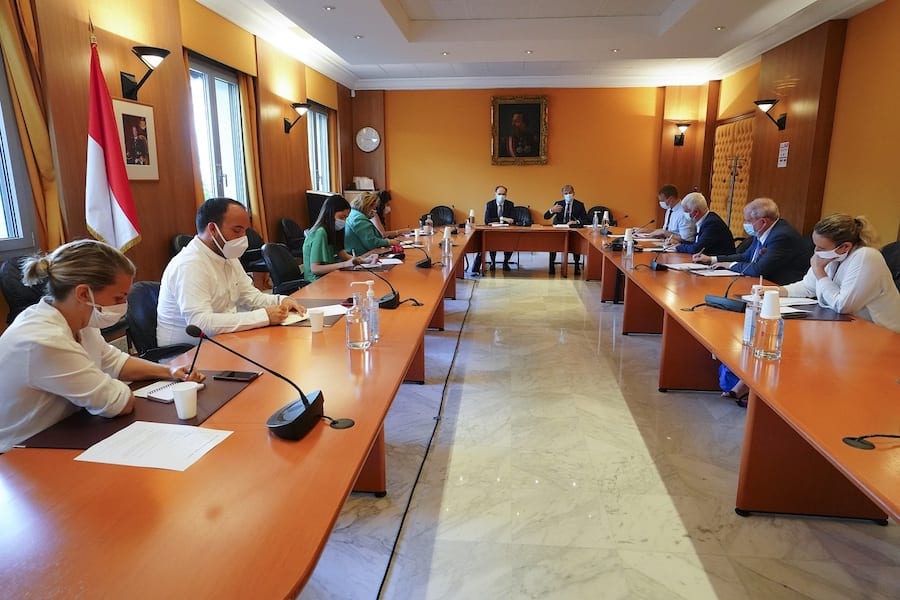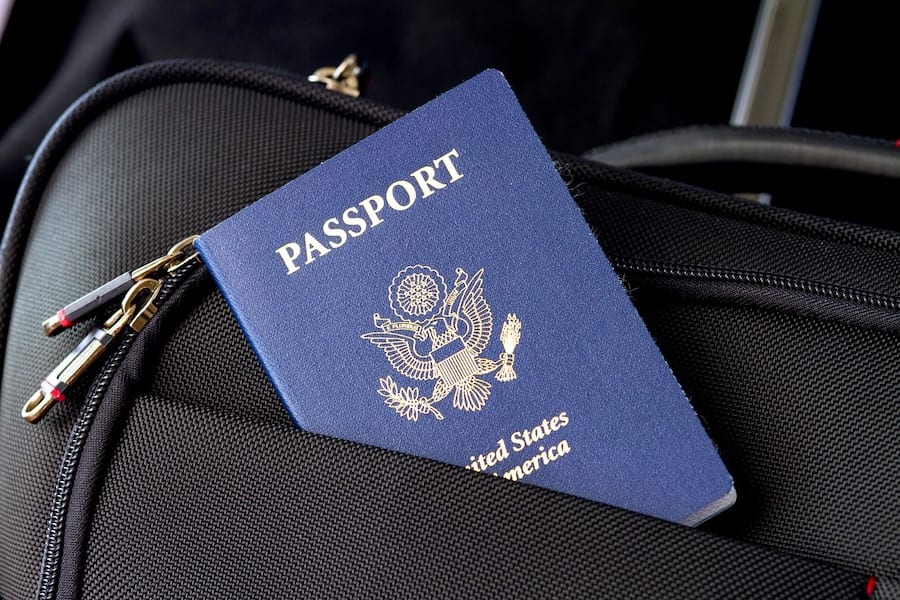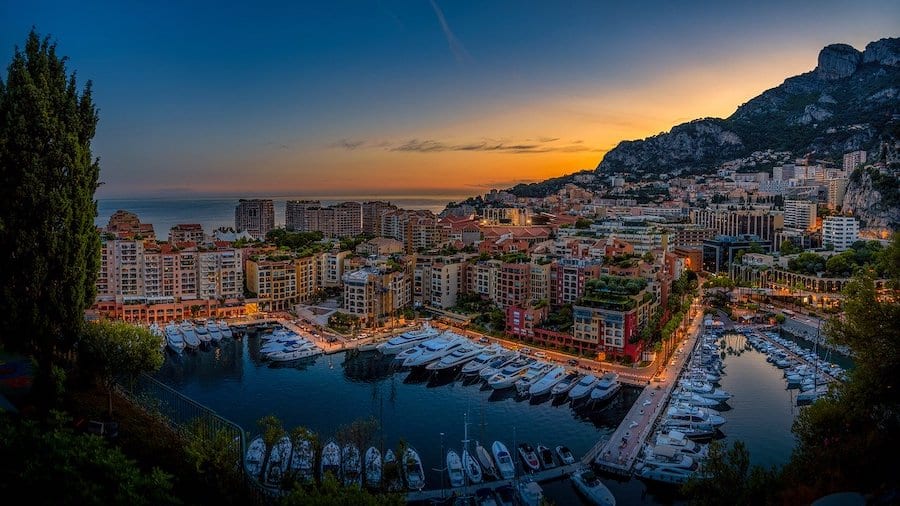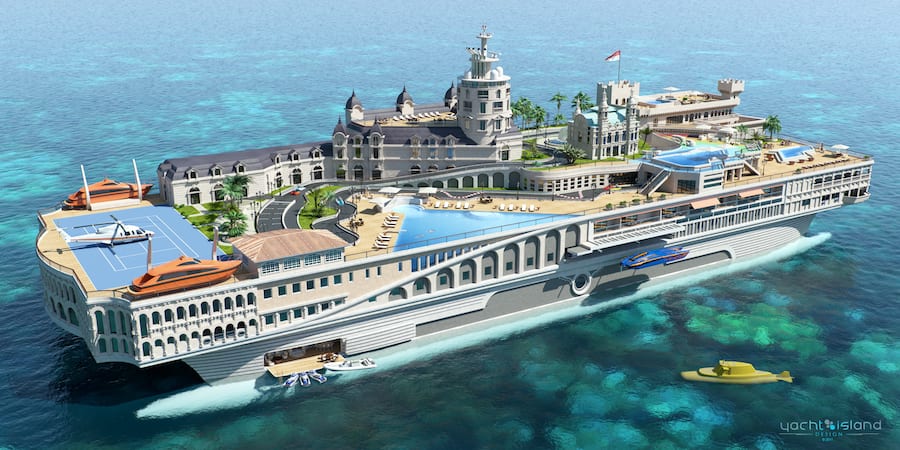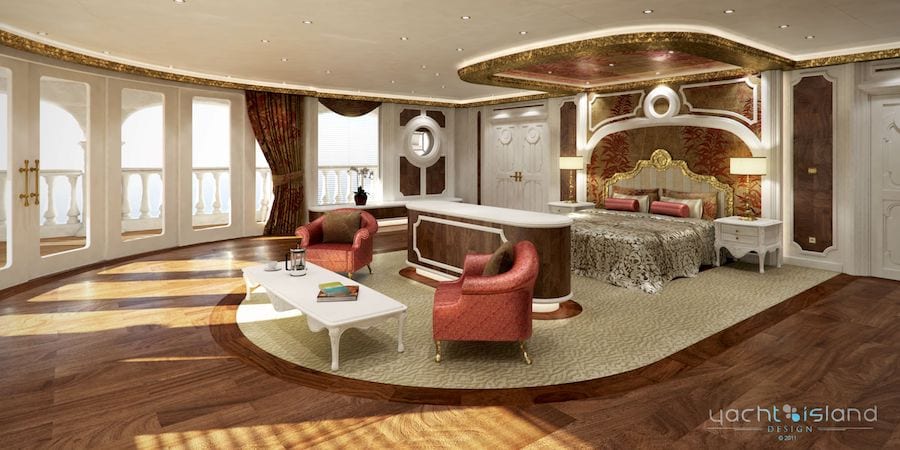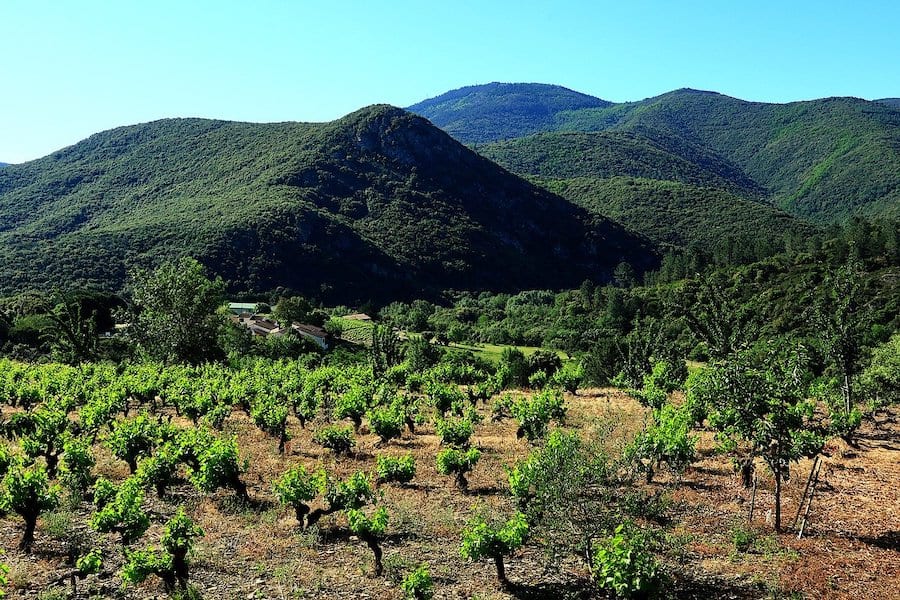Monaco will extend its financial support for businesses most affected by the Covid crisis as part of a new four-point plan to revive the local economy.
At a press conference on Tuesday morning, Health Minister Didier Gamerdinger and Finance Minister Jean Castellini detailed the new concrete measures that the government is taking to support recovery, covering everything from financial support to developing e-commerce.
Reinforced Temporary Total Unemployment (CTTR)
“Everyone agrees, it is not possible to extend this assistance and job protection scheme indefinitely, which affected up to 22,000 workers in mid-March and another 14,700 in May. So far it has cost the State €70 million,” said Didier Gamerdinger.
The Minister went on to reveal the latest financial support his government will make available:
For companies that resumed their activity from 4th May, the State will maintain CTTR for the month of June, then reduce it by 10% in July and an additional 10% in August. The company will be responsible for making up the difference. For companies that reopened on 2nd June, such as cafes, restaurants, and sporting venues, the reduction of 10% in CTTR will only take place in August. For nightclubs that have not reopened, the CTTR system will be kept as it is.
Meanwhile, traders, restaurateurs and bars on the Rock who are still experiencing difficulty will not have their CTTR support reduced.
The government will review the overall situation in mid-August before announcing the measures to be adopted in September.
Social security support
The Prince’s Government aims to go further in helping the sectors particularly affected by the crisis: tourism, events, culture, sport and other certain businesses, which could concern up to 620 companies.
As of July, the State will pay half of the social security contributions (retirement and sick leave) for companies in need of support, with the exception of those already subsidised by the State. To qualify, these companies will have a turnover of no more than €1 million in 2019 and will have to provide proof of a loss of turnover of at least 20% in June.
The Economic Recovery Support Commission (CARE)
The CARE Commission is chaired by Finance Minister Jean Castellini and is composed of representatives from AMAF, the Order of Chartered Accountants, the Budget and Treasury Department, the Welcome Office’s Laurence Garino, and Chairman of the Finance Committee and the Economy of the National Council Balthazar Seydoux. Each week from July it will be charged with examining the aid files for businesses in difficulty.
“CARE will study the files of companies with a turnover of less than €5 million, which will have to present a forecast balance sheet for the months of July to September. State aid will result in the assumption of up to 50% of fixed costs to which may be added expenses directly linked to the revival of the activity (communication, prospecting trips, etc.), and aid capped at €35,000,” said Jean Castellini.
Enhancing the attractiveness of the Principality
The government will push ahead with the implementation of the Monaco Safe Label, designed to reassure customers and tourists that the health recommendations in force in the Principality are being respected.
Meanwhile, the Welcome Office will embark on a promotional campaign for retail and restaurants, and the Department of Tourism and Congresses will launch a marketing campaign to help revive the tourist industry.
Development of e-commerce
The government intends to boost the virtual commercial prospects of companies through several channels, including the authorisation of PayPal in the Principality and the better positioning of Monaco in search engines, etc.
Digital Tokens Act
A law adopted in June by the National Council allows for the “investment in the economy of tomorrow” through the use of tokens, a financial innovation that facilitates the financing of certain sustainable projects.
Related stories:
Top photo: ©Direction de la Communication-Michael Alesi
